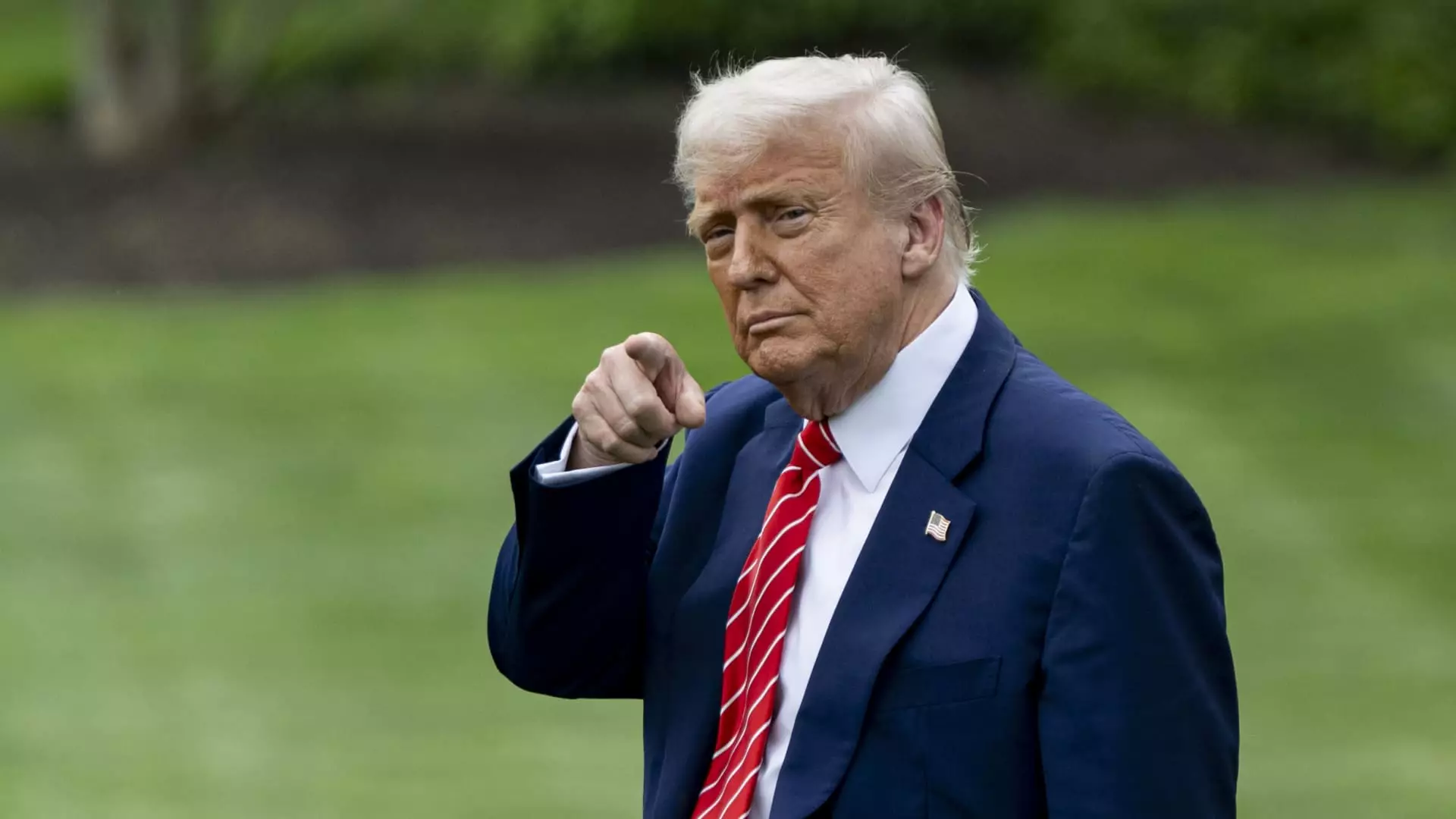As the Senate deliberates over President Donald Trump’s ambitious spending proposal, a particular provision has emerged as a point of contention and concern: Section 899. This lesser-known segment of the House-approved bill threatens to impose a punitive tax of up to 20% on foreign entities investing in the U.S., including multinational corporations that operate on American soil. Described by some analysts as a “revenge tax,” its implications could substantially disrupt the fabric of international investment and undermine the United States’ position as a global economic leader.
The language of Section 899 stipulates that if a foreign country levies “unfair taxes” on U.S. businesses, the U.S. could retaliate by increasing the tax burden on those foreign investors. This retaliation not only raises ethical questions but also unravels the delicate negotiations that are fundamental to global trade frameworks. In an era where economic interdependence is at its peak, this taxation strategy offers an alarming glimpse into a potentially isolationist future.
The Shockwaves in Wall Street
Even before the Senate’s review, Wall Street has expressed incredulity regarding the potential ramifications of this legislation. Investment experts, including James Lucier from Capital Alpha Partners, pointed out that the market did not anticipate such a confrontational fiscal approach within a spending package. The Investment Company Institute, representing the overarching asset management community, describes Section 899 as a potential barrier to foreign investment in the United States. Such limitations could not only curtail the influx of much-needed capital but also deter innovative ventures that thrive on international collaboration.
The proposed hike in withholding tax, which could rocket up to a staggering 50% in some scenarios, may serve as a chilling deterrent for hedge funds and private equity firms that traditionally rely on cross-border investments. The chilling effect on capital flow should not be underestimated, as such drastic taxation can create an inhospitable environment for investment and innovation.
A Threat to Economic Stability
The scope of Section 899 further extends through its nuanced definitions of “unfair foreign taxes,” which involve various taxation mechanisms such as the undertaxed profits rule, digital services taxes, and future levies that could emerge. This lax categorization raises the specter of retaliation against many nations, particularly those seen as wealthy trading partners. Daniel Bunn, from the Tax Foundation, emphasizes that this legislation largely targets foreign corporations without considering the logical consequences for the U.S. economy—a gamble that recklessly risks economic prosperity for the sake of posturing and pride.
Furthermore, the expansion of the so-called Base Erosion and Anti-Abuse Tax (BEAT) also promises extensive ramifications for businesses operating within the U.S. but headquartered abroad. Companies fearing retribution from Section 899 might restrict their operations or reconsider investments in American markets. A sustainable economic ecosystem thrives on cooperation, not conflict. Yet this provision appears to advocate for a punishing approach that could incite widespread economic backlash.
Political Dynamics and the Bigger Picture
The initial support for Section 899 from certain Republicans reveals the political undercurrents shaping this legislation. Backers commonly tout the measure’s potential to generate approximately $116 billion over the next decade, funding various initiatives under Trump’s hefty spending bill. However, the bipartisan perspective is often neglected in favor of nationalistic sentiments. House Ways and Means Committee Chairman Jason Smith has insisted that U.S. policymakers should prioritize domestic needs over international economic relationships, which could lead to unforeseen consequences that harm America’s long-term economic interests.
The ramifications of imposing such foreign taxes do not simply affect the foreign investors but create a ripple effect that could lead to strained diplomatic relations and retaliatory measures from other nations. The reliance on foreign capital in numerous sectors, from technology to infrastructure, makes it crucial to foster a friendly atmosphere for collaboration rather than stifle it through punitive tax policies.
A Pragmatic Call for Caution
Section 899 embodies a troubling dichotomy at the intersection of domestic policy and global economics. While it may appeal to nationalist sentiment, the reality reflects a profoundly risky strategy that jeopardizes both Wall Street and the broader American economy. As this provision awaits Senate approval, one must question whether short-term political gains are worth the potential long-term damage inflicted on a market that thrives on international cooperation and trust. The destructive potential of the “revenge tax” may very well eclipse whatever revenue it aims to generate, fundamentally transforming the landscape of American investment and economics.

